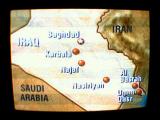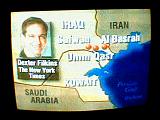Coalition of the Willing
The " Coalition of the Willing": Afghanistan, Albania, Australia, Azerbaijan, Bulgaria, Colombia, the Czech Republic, Denmark, El Salvador, Eritrea, Estonia, Ethiopia, Georgia, Hungary, Italy, Japan, South Korea, Latvia, Lithuania, Macedonia, the Netherlands, Nicaragua, the Philippines, Poland, Romania, Slovakia, Spain, Turkey, the United Kingdom, the United States, Uzbekistan.

